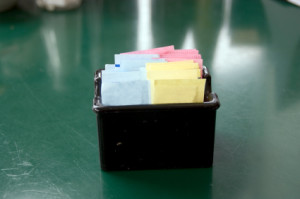Splenda and Aspartame Side Effects
As we approach the holidays, the tantalizing desserts are so close we can almost smell them! With pumpkin pie around the corner, it’s important that we mention an ingredient that can change a delicious dessert into a diet disaster: artificial sugars. What we would recommend, is that you become a dessert detective during the holidays. Do a little reconnaissance work to find out what’s in the dessert you’re about to consume. We all have well-meaning relatives and friends who are trying to do minimal damage to our waistlines by using artificial sugars such as Splenda. And maybe that’s you. Again, quite well-intentioned, but are artificial sugars really the diet savior as hyped? Let’s look at the facts:
•An unnatural neurotoxin that destroys brain cells.
•40 percent of aspartame broken down in the digestive tract is aspartic acid, a known excitotoxin that excites brain cells literally to death
•Broken down in the body as formaldehyde, a know cancer-causing agent used by morticians for embalming
•Use of aspartame associated with increased incidence of brain tumors, mood disorders, declining mental function, migraines, seizures, etc
•Addictive
•Aspartame has been shown to contribute to weight gain by increasing cravings
Did you stop drinking your Diet Coke mid-sip? Aspartame can be found in most diet food and drinks, low fat yogurts, sugar-free gums, cereals, and thousands of other products.
•Unnatural substance that is chemically synthesized by adding chlorine molecules to sugar
•A chlorinated hydrocarbon, which is found in the petrochemical industry and is a known carcinogens
•Side effects in animal studies include shrunken thymus glands, enlarged liver and kidney, atrophy of lymph follicles in the spleen and thymus, reduced growth rate, aborted pregnancy among many others
•Side effects reported by humans include gastrointestinal problems, blurry vision, migraines, heart palpitations, shortness of breath, frequency to urinate at night, depression, drugged sensation, joint pain and dizziness
•Originally made as a pesticide and is perfect for getting rid of unwanted ant beds
Splenda is found in more than 4,000 packaged foods and beverages and produces more than 50 percent of the billion dollar artificial sweetener market in the United States. As you’re out shopping for ingredients to make your holiday favorites, don’t forget to check the label for artificial sugars.
I bet you thought this post would be about avoiding all sugar and make you feel guilty through the holidays, right? Of course we would love for you to avoid sugar completely, but let’s be honest, it’s the holiday season and passing on the dessert every single time isn’t a realistic goal. It’s best to be cognizant of your sugar intake to keep it to a minimum. What’s the lesson here? Choose your dessert wisely and make sure it’s worth it!
Click here to listen to Dr. Janet Hull discuss the dangers of artificial sweeteners.

